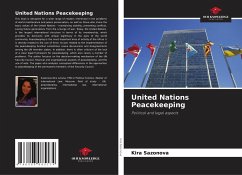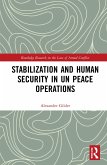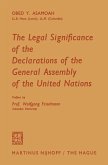This book is designed for a wide range of readers interested in the problems of world maintenance and peace preservation, as well as those who share the basic values of the United Nations - maintaining stability, preventing conflicts, saving future generations from the scourge of war. Today, the United Nations is the largest international structure in terms of its membership, which provides its decisions with unique legitimacy in the eyes of the world community. Peacekeeping is the most important area of activity of the UN as it is directly related to the use of force. Issues related to the implementation of the peacekeeping function sometimes cause discussions and disagreements among the UN member states. In addition, there is often criticism of the lack of a clear legal framework for peacekeeping, which also raises a number of problems. The author focuses on the decision-making mechanism of the UN Security Council, financial and organizational aspects of peacekeeping, and the use of veto. The paper also analyzes conceptual differences in the approaches to peacekeeping of the permanent members of the Security Council.
Bitte wählen Sie Ihr Anliegen aus.
Rechnungen
Retourenschein anfordern
Bestellstatus
Storno








